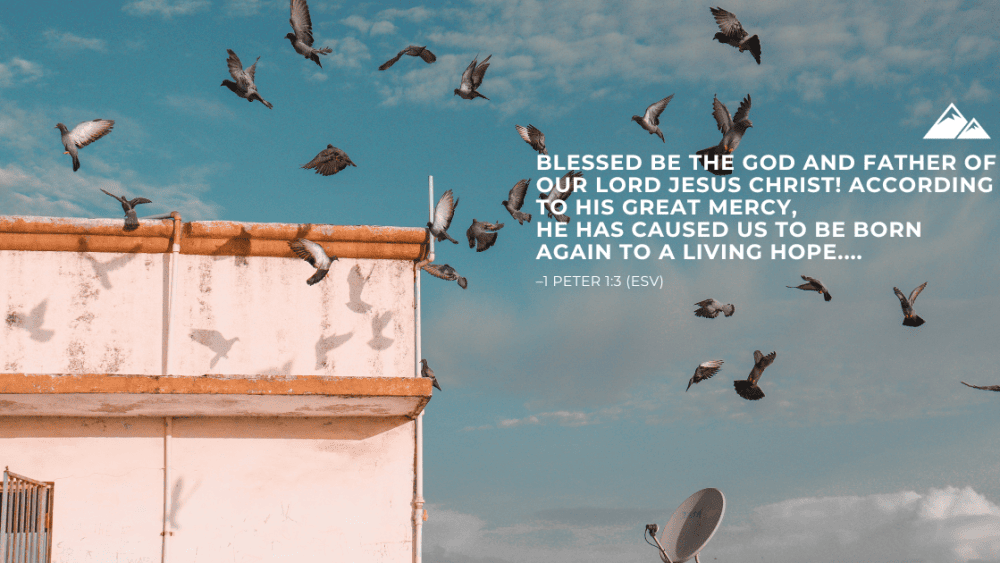by Richard Haney, Executive Director
Last month, I sent a newsletter in which I called 2023 a “big year.” I went to Egypt for the first time (March), had major heart surgery (June) and then met and welcomed my successor at Frontier Fellowship’s year-end staff retreat. But now, as I peek into the 2024 calendar, I see another big year looming. I’ll travel a lot with my successor during the winter and spring months, introducing him to churches and partners. Then, in May, I’ll retire from serving with Frontier Fellowship after ten years.
I have been musing: What will that transition be like for Frontier Fellowship? What will it be like for me? What will I do next? Will God give me another assignment—something in the world of frontier mission, parish ministry or seminary teaching? I remain interested in all three. Then maybe I’ll rest a bit and play more with the grandkids before they get any older!
But before I move too far ahead, I’ll begin by working on my first retirement lesson—I need to learn how to slow down. I work fast, travel fast, read fast—I even eat fast! Everything feels just a bit too fast.
Can you recall how you feel when you are traveling through an airport? I constantly look at my watch. Do I have enough time to check a bag, get through security and get in line so I can board the plane and find room in the bin for my carry-on? I always feel rushed when I’m traveling. Even when I arrive at my destination, I still have to pick up my suitcase at the luggage carousel, get on a shuttle to the rental car center, wait in line to get a car, check the GPS and drive to the hotel. There’s one thing after another after another…. But is it my travel schedule that has taught me to be hurried, or is it possible that rushing is the default of how I handle my time and life?
You and I live in a society marked by “instantaneous” and “immediacy.” Our phones and computers search for data almost instantly. We even have digital assistants—Siri, Alexa and others—that we can use to search even more quickly. I’m sure that tomorrow we will go even faster.
I remember doing dissertation research on the philosopher, Michael Polanyi. After spending nearly a week in the Joseph Regenstein Library at the University of Chicago poring over the Polanyi archives, I became fascinated with his correspondence with philosopher Marjorie Grene. Over a period of almost 20 years (beginning in 1950), they wrote nearly every day to one another—Polanyi posing a question, which Grene would then answer out of her vast knowledge of Western philosophy. But their letters traveled slowly between Manchester, England and Chicago. Each had to wait weeks for the answer or the next question. It was so intriguing to read their dialogue with days and weeks intervening between questions and answers.
Philosophers help us think about big ideas, and poets assist us in savoring words and taking metaphors seriously. Both philosophy and poetry call the reader to take time to digest what is being offered. I listen to a podcast called “The Slowdown,” where every day you hear a reading of a poem. And poetry cannot be hurried. You must slow down to read it or to listen. Here is one of my favorite poems—read it slowly:
Tell all the truth but tell it slant –
Success in Circuit lies
Too bright for our infirm Delight
The Truth’s superb surpriseAs Lightning to the Children eased
With explanation kind
The Truth must dazzle gradually
Or every man be blind –—Emily Dickinson, “Tell All the Truth but Tell It Slant”
Gradually. Slowly. Slant. You have to chew on a good poem. I need my poet friends and philosopher mentors to help me slow down. I knew this already, but I need to take these teachers more seriously. I need to practice “the slowdown.”
Slowing down includes waiting. As I reflect on waiting, I’m reminded of the world’s 2+ billion peoples who are still waiting to hear the Good News of Jesus in a way they can understand. They are waiting to be introduced to Jesus and His story, waiting to experience grace and mercy.
Frontier Fellowship is praying and working to make the Good News accessible to waiting peoples, and so we are waiting, too. We are waiting for grace and truth made manifest in Jesus to be made known in every nation, tribe, people and language of the world (Revelation 7:9). I carry within me a “holy impatience” for the unreached to be reached, realizing the urgency of the Gospel. At the same time, I cannot control the time it takes for another language to receive a Bible translation, nor can I control when members of a community will be receptive to a new Bible translation. I cannot snap my fingers and gather resources for these efforts.
We live in between mission intentionality and Gospel receptivity. I need to be patient and slow down, but I pray and work with urgency so all may hear. It is God’s mission and the outworking of it is mysterious
Lord, help me to slow down when necessary and to accelerate when appropriate. Time to hurry up and wait! Happy New Year!


Comments are closed.